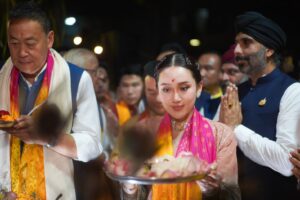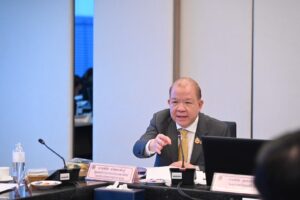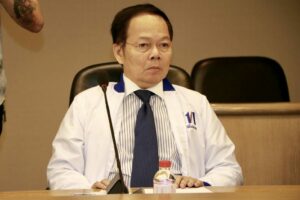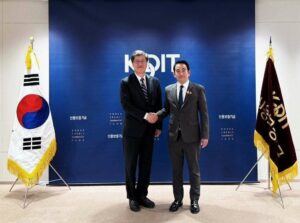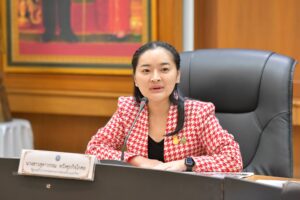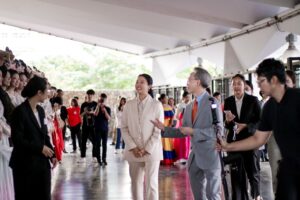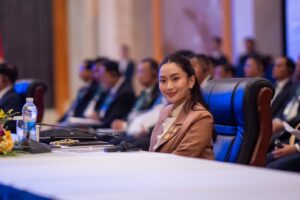Pheu Thai Party Statement On Restrictions to Freedom of Expression of the Draft Charter
Pheu Thai Party Statement
On
Restrictions to Freedom of Expression of the Draft Charter
The Election Committee has set 7th August, 2016 as the day for the referendum of the Meechai’s version of the draft charter. Pursuant to this, on 22nd April 2016, the Referendum Act, Year B.E. 2559 (A.D. 2016) came into effect. The Act sets strict limitations on public expression of opinion of the draft charter and how it is to be voted. Moreover, it gives state officials free interpretation of intentions by those who come out to express their opposition against the charter in order to implicate them. The head of the National Council for Peace and Order (NCPO) had also issued orders nos. 3/2558 and 13/2559 that gave wide spread power to detain, conduct searches and make arrests without the court orders which is a violation of the people’s rights of expressions, such as never seen before. In the case of Mr. Watana Muangsook who was detained by soldiers for merely expressing his opinion on the draft charter; or the case of a university lecturer who expressed his opposition to the draft charter and was threatened with legal measures; similar cases for Mr. Jatuporn Promphan and Mr. Suthep Thaugsuban following their public statements; the detainment of around 10 civilians who were active on the social media, Facebook, at a military camp on the pretext that they had breached the Computer Act, Year B.E. 2550 (A.D. 2007), not to mention interviews given by Gen. Prayuth Chan-o-cha and Gen. Prawit Wongsuwan, both of whom, in a threatening manner, disallowed the expression of public opinions or for conducting forums on the pros and cons of the draft charter. To this, Pheu Thai Party sees that voting on the charter referendum is a process of sounding out public opinion as the people have sovereignty and should have the right to decide whether or not the Constitution, which is the highest form of governance in the country, should be adopted. Because of this, the referendum is a very important and meaningful process.
Therefore, the referendum must be conducted in a righteous way with transparency, honesty and fairness at every step of the process. The people must have the right to know the truth and the opinions of the various parties and they must have the right to express their opinions and make comments and be able to listen to forums on its pros and cons as the objective of the referendum is to allow the people to have as much information as possible before they cast their vote to accept or reject it. This is an international principle when conducting referendums.
After having considered the Referendum Act, Year B.E. 2559 (A.D. 2016), Pheu Thai Party sees that, while Section 7 guarantees the individuals’ rights to free expression and dissemination of opinions regarding the referendums, Section 61 sets down strict conditions that are contradictory to Section 7. Moreover, it sets very stiff punitive measures for those who breach the Act, such as a 10-year prison term. The wordings in the Act also provides channels for officials to be able to interpret a person’s actions at their own discretion, to the point that it has become difficult to understand the “Dos and Don’ts” that a person must follow. The restriction to freedom of expression and dissemination of opinions of the draft charter not only obstructs the right to information but the use of dictatorial laws to restrict freedom of expression clearly goes against the principles of human rights and goes against Section 4 of the Interim Constitution on Freedom of Expression.
At the same time, Section 61 grants power to the state to utilize all forms of state mechanisms to reach the people and to give a one-sided view of the draft charter and how it is to be voted. Even though the government has claimed that the purpose of the undertaking was to clarify the main points of the charter but in practice this is to be considered as leading (the people) into accepting it. Besides, the frequent threat made by Gen. Prayuth and Gen. Prawit against anyone who expresses their opinions in this matter has created fear and obstructs the people’s freedom to the extent that there is no point in conducting the referendum.
From these incidents, the local and international organizations have widely expressed their concerns on the obstruction of the referendum and have called for freedom to debate on the draft charter. These include the UN High Commissioner for Human Rights , the ASEAN Parliamentarians for Human Rights (APHR), the Human Rights Lawyers Association (HRLA), the Cross Cultural Foundation (CRCF), Community Resource Centre Thailand (CRC), the EnLAW Thai Foundation, the Thai Lawyer for Human Rights, Union for Civil Liberty and the concerned citizens, etc.
Pheu Thai Party, therefore, calls on the NCPO to do the following:
1. That the government and the NCPO must amend Sections 7 and 61 of the Referendum Act, Year B.E. 2559 (A.D. 2016) to be in line with the democratic principles so that individuals are fully given the freedom to make comments, have discussions or debates and express and disseminate their opinions, whether or not they agree or disagree with the draft constitution, if this is done in an honest and academic manner.
2. That the Election Committee urgently disseminates regulations of the Referendum Act, Year B.E. 2559 (A.D. 2016) and these regulations must be in line with the intentions in Section 7 which stipulates that the expression and dissemination of an individual’s opinions that is done in an honest and academic manner is a lawful act.
The objective of our call for the above actions is to have a referendum result that reflects the honest desire of the people that is accepted by all parties and do not lead to future conflicts and disunity.
Pheu Thai Party
28th April 2016

